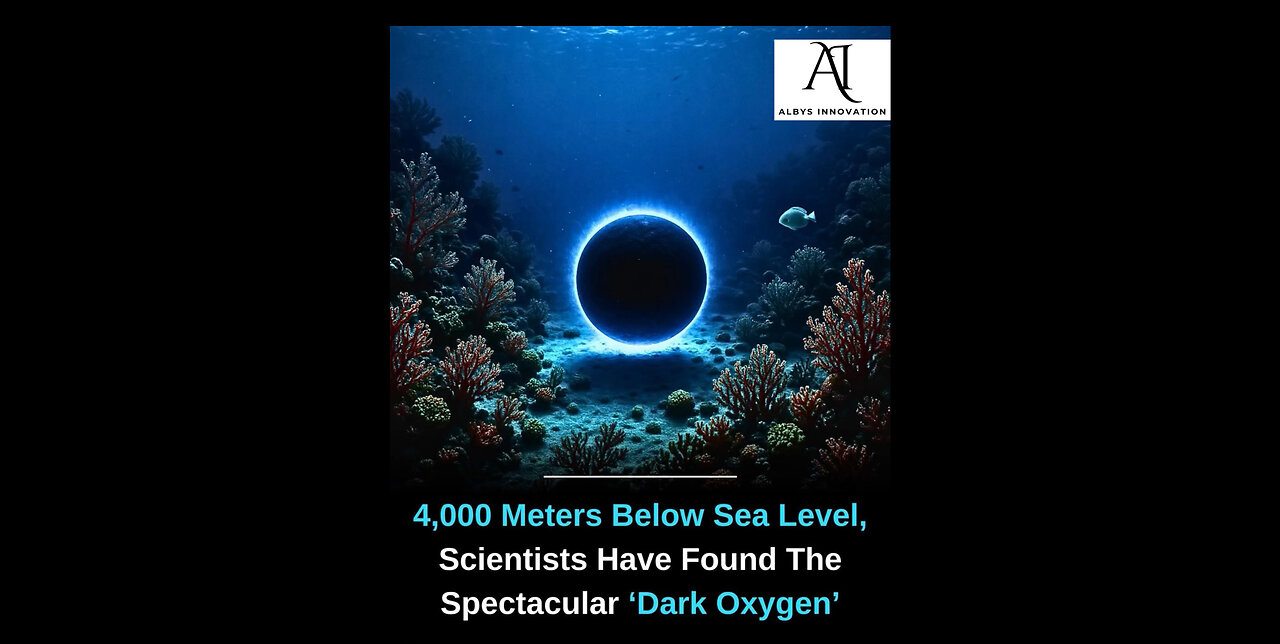Premium Only Content

Dark Oxygen” Discovered 4,000 Meters Deep: Earth’s Deep-Sea Rocks Are Making Oxygen Without Sunlight
A groundbreaking discovery is shaking up everything we thought we knew about life, oxygen, and Earth’s deep-sea environment. Scientists have identified a phenomenon called “dark oxygen” — oxygen being produced 4,000 meters below the ocean surface, completely without sunlight. The source? Polymetallic nodules—potato-sized metallic rocks scattered across the Clarion-Clipperton Zone (CCZ) in the Pacific Ocean.
These nodules are already known as “rock batteries” due to their rich deposits of valuable metals like cobalt, nickel, and manganese. But now, researchers believe they may act as natural geobatteries, using electrochemical energy to split seawater molecules into hydrogen and oxygen. This means oxygen is being created in total darkness, without microbial life or photosynthesis. The implications? Massive. It could rewrite theories about the origin of life on Earth—and suggest how life could exist in similar extreme environments on other planets.
The discovery, published in Nature Geoscience, was initially doubted—lead scientist Andrew Sweetman thought faulty equipment was to blame. But after controlled lab experiments confirmed the oxygen production, the scientific community is stunned.
This revelation has also intensified the debate on deep-sea mining, as over 25 countries are now urging the International Seabed Authority (ISA) to pause mining operations. Experts like Dr. Lisa Levin of the Scripps Institution warn that disrupting these untouched zones could have irreversible effects on ecosystems we barely understand.
Will we protect these mysterious oxygen-generating rocks, or mine them before unlocking their secrets?
#DarkOxygen #OceanDiscovery #DeepSeaMystery #PolymetallicNodules #LifeInTheDark #ScienceNews #TechBreakthrough #Geobattery #SpaceScience #DeepSeaMining #ClimateScience #NatureGeoscience #Exploration #EarthSecrets #UnchartedEarth #EnvironmentalNews #ViralScience #OceanFacts #TechViral #FutureOfLife
-
 15:23
15:23
T-SPLY
7 hours agoBUSTED Assistant Principle And Brother Arrested For Wanting To Kill ICE!
2.04K5 -
 22:06
22:06
Jasmin Laine
8 hours agoCBC STUNNED Into SILENCE After JD Vance’s BRUTAL Message to Canadians
1.97K11 -
 2:04:27
2:04:27
TimcastIRL
6 hours agoAntifa CONVICTED Of TERRORISM, Fears Of CIVIL WAR Grow | Timcast IRL
214K64 -
 2:16:43
2:16:43
TheSaltyCracker
4 hours agoIt's Over Zelensky ReeEEStream 11-21-25
64.3K115 -
 LIVE
LIVE
Drew Hernandez
21 hours agoMIKE HUCKABEE EXPOSED FOR OFF RECORD MEETING WITH CONVICTED ISRAELI SPY?
1,001 watching -
 LIVE
LIVE
SynthTrax & DJ Cheezus Livestreams
14 hours agoFriday Night Synthwave 80s 90s Electronica and more DJ MIX Livestream SYNTHWAVE / ANIME NIGHT
202 watching -
 14:25
14:25
Tactical Advisor
12 hours agoReal Life John Wick Suit | Grayman & Company
11.8K2 -
 LIVE
LIVE
I_Came_With_Fire_Podcast
12 hours agoAlien Enemies Act | Dismantling the Department of Education | Valhalla VFT & America First
200 watching -
 19:53
19:53
MetatronHistory
3 hours agoRome VS Greece - Ultimate Clash of Civilizations Explained
7.74K2 -
 33:09
33:09
Exploring With Nug
5 hours ago $2.84 earnedThey Weren’t Ready for Nightfall on Blood Mountain… So I Helped Them Down
27.7K1